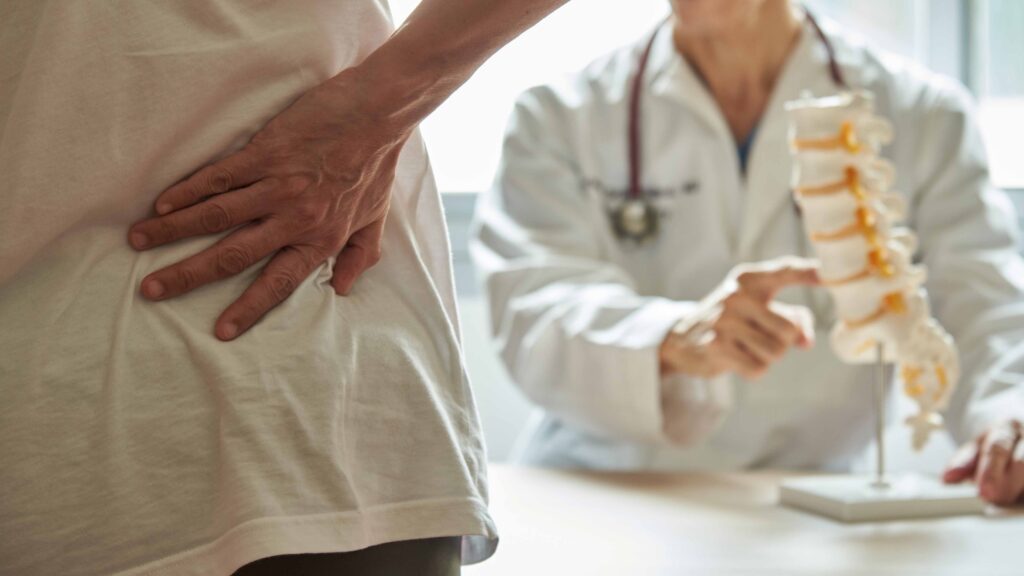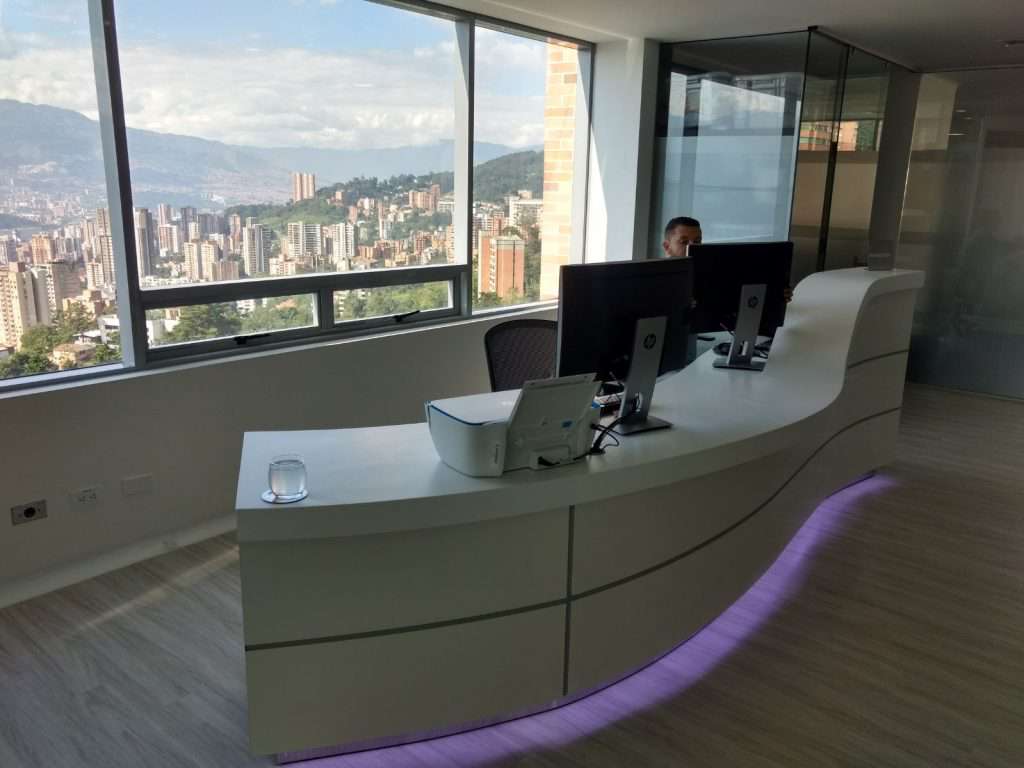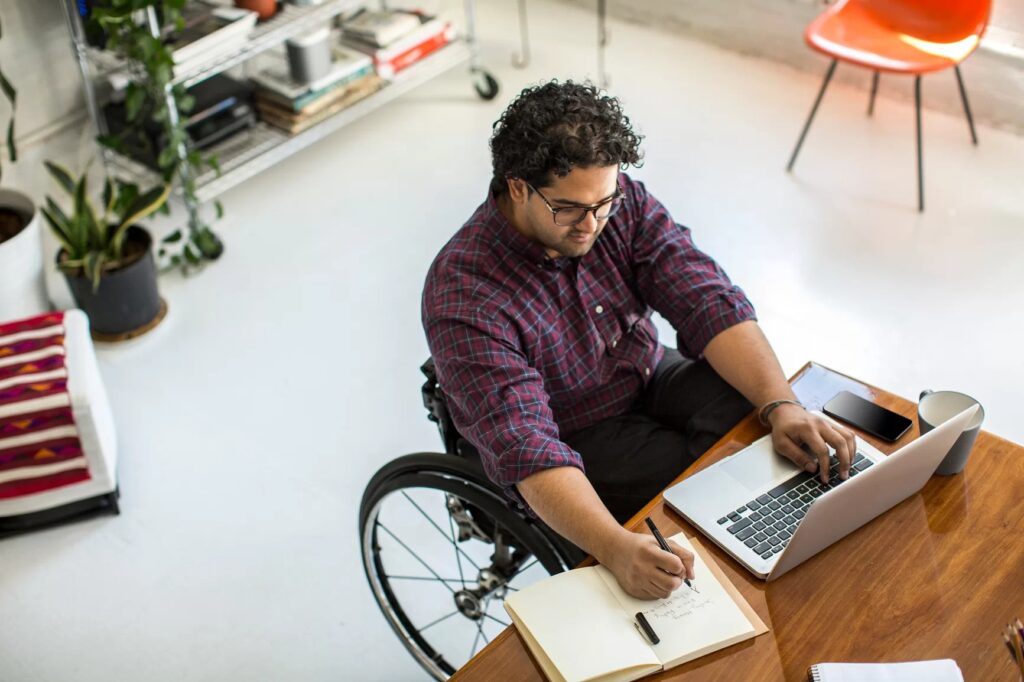
Spinal discs play a critical role in the spinal cord. These discs act as shock absorbers between the vertebrae in the spinal cord, support movement, and bear weight. Any damage or dysfunction in the spinal discs can lead to serious consequences for patients, including a herniated disc. To better understand herniated discs and how we can treat them, we should first discuss what a spinal disc is made of.
What is a Herniated Disc?
A disc is made up of two layers. The outer layer is the annulus fibrosus, which is a tough, flexible exterior layer. The inner layer is the nucleus pulposus, which is the soft, jelly-like center of the disc. The inner layer is made up of mostly water and a loose network of collagen fibers. This allows the vertebral disc to withstand the movement and forces that the spinal cord experiences.
When a disc becomes herniated the inner layer begins to leak some of its material. The chemical irritants can contribute to inflammation around the disc. This leak can affect This causes pain, numbness, and weakness in patients. This issue can keep patients sidelined for weeks or even months. During this time, patients may not be able to work and take part in some of their normal activities.
This medical condition is not rare. Herniated discs are a widespread medical issue. Every year about 2% of the population suffers from a herniated disc. This serious medical condition can actually be solved through just rest.
Can Herniated Discs Heal on their Own?
Yes, herniated discs can heal themselves. In many cases, herniated discs eventually heal on their own. In fact, about 90% of herniated disc patients can rest for a few weeks or months and their symptoms will mostly go away. Researchers believe that there are three reasons why herniated discs resolve themselves in just a few weeks.
- Over time, the material that leaks from the disc absorbs into the body. This leads to a smaller disc, which does not irritate the nerve roots near the disc.
- Exercises may move the herniated area away from the spinal discs. Researchers are still attempting to understand if exercise actually accomplishes this task.
- The immune system attacks the herniated disc. This reduces the amount of herniated material that is present in the body, which reduces the inflammatory response and irritation around the disc.
Whatever the exact mechanism is, the body is generally able to reduce the symptoms a patient feels from a herniated disc. This generally does not mean that the affected disc goes back to its original form and function. This lack of full recovery could potentially lead to other problems in the back.
While the body recovers and heals itself, medical professionals will often recommend anti-inflammatory pain medication. In cases where the disc is taking longer than expected to heal, patients may receive cortisone shots. These shots can reduce inflammation in the area around the disc, but generally lead to more wear and tear in the discs.
However, not all patients can rely on their bodies to heal their herniated disc. There is a segment of the patient population whose herniated discs will remain an issue, no matter how long they rest. For these patients, surgery is often recommended as the next stage of treatment.
Can I Avoid Surgery?
Patients generally want to avoid going under the knife. If you are one of the patients who continually suffers from pain related to a herniated disc, then your doctor may recommend surgery. About 10% of patients suffer from herniated discs where the symptoms do not go away naturally. Patients who are suffering from herniated discs may believe that surgery is the only option.
Typically, this treatment does heal the symptoms the patient is experiencing. However, there are patients who continue to suffer from herniated disc symptoms even after they have undergone surgery. According to some studies, the range of success for herniated disc surgery ranges from 70% to 95%.
Researchers are actively looking for other therapeutic options for patients who do not respond to conventional treatments. One promising treatment for patients with herniated discs could be stem cell therapy.
Stem Cell Therapy for Herniated Discs
The regenerative medicine community has embraced stem cell therapy for a multitude of problems. Stem cells have regenerative properties. When stem cells are introduced into an area where tissues and cells are damaged, the stem cells release healing factors and stem cells can differentiate into the type of damaged cell. Stem cells may be able to repair the damaged discs which can prevent other back conditions, such as degenerative disc disease.
BioXcellerator is dedicated to helping patients who suffer from a variety of back problems. Our team will work with you to develop a customized treatment plan that works for your spinal cord problems. Whether you are suffering from a herniated disc or spinal stenosis, we will help you improve your quality of life.

